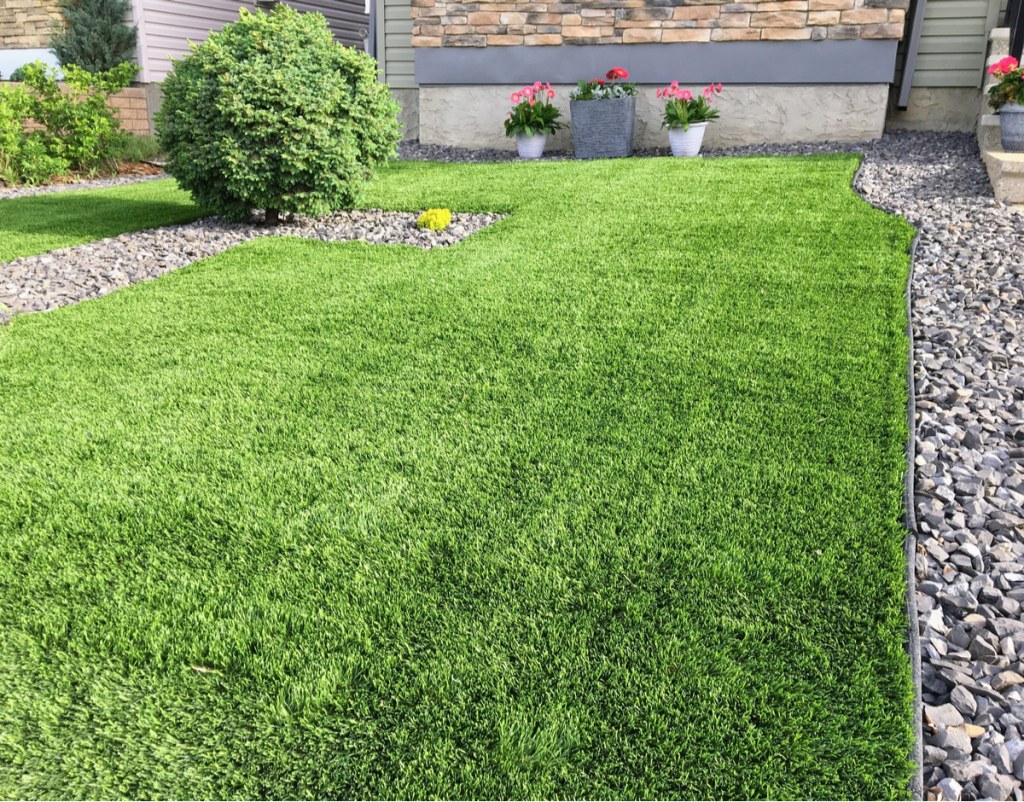Discover The Ultimate Solution With The Cheapest Ground Cover For All Your Landscaping Needs!
Cheapest Ground Cover: An Affordable Solution for Your Outdoor Spaces
Introduction
Greetings, Shopper! Are you looking for an inexpensive way to beautify your outdoor spaces? Look no further than the cheapest ground cover options available in the market. Ground cover plants are a practical and affordable solution to add color, texture, and functionality to your garden, yard, or any other outdoor area. In this article, we will explore the various types of ground covers and provide you with all the information you need to make an informed decision for your landscaping needs.
1 Picture Gallery: Discover The Ultimate Solution With The Cheapest Ground Cover For All Your Landscaping Needs!

Table of Contents
What is Ground Cover?
Who can Benefit from Ground Covers?
When to Use Ground Cover Plants?
Where to Find the Cheapest Ground Cover?
Why Choose Ground Cover Plants?
How to Successfully Implement Ground Covers?
Advantages and Disadvantages of Ground Cover Plants
Frequently Asked Questions
Conclusion
Final Remarks
What is Ground Cover?

Image Source: installitdirect.com
Ground cover refers to low-growing plants that spread and cover the ground, creating a dense carpet-like effect. These plants serve multiple purposes, such as preventing soil erosion, suppressing weeds, retaining moisture, and adding visual appeal to outdoor spaces. Ground cover plants come in various forms, including grasses, perennials, and shrubs.
Who can Benefit from Ground Covers?
Ground cover plants are suitable for a wide range of individuals and organizations. Homeowners, landscapers, garden enthusiasts, and even public parks can benefit from the use of ground covers. Whether you have a small backyard or a large open area, ground cover plants can be a cost-effective solution to enhance the overall look and functionality of your outdoor spaces.
When to Use Ground Cover Plants?
Ground cover plants are versatile and can be used in various situations. They are particularly useful in areas where grass may not grow well, such as shaded locations, slopes, or areas with poor soil conditions. Ground covers can also be used to create visually appealing borders, fill in gaps between larger plants, or create pathways and walkable areas in your garden.
Where to Find the Cheapest Ground Cover?
When it comes to finding the cheapest ground cover, your options are not limited. Local nurseries, garden centers, and online marketplaces offer a wide selection of affordable ground cover plants. Additionally, you can consider propagating ground cover plants from existing ones in your garden, saving you even more money.
Why Choose Ground Cover Plants?
There are several reasons why ground cover plants are an excellent choice for your outdoor spaces. Firstly, they are cost-effective compared to other landscaping options. Secondly, they require minimal maintenance once established, saving you time and effort. Thirdly, ground covers promote environmental benefits, such as soil conservation and the prevention of weed growth.
How to Successfully Implement Ground Covers?
Implementing ground covers requires careful planning and execution. Start by identifying the specific needs and conditions of your outdoor space. Consider factors such as sun exposure, soil type, and maintenance requirements. Research different ground cover options that suit your requirements and consult with experts if needed. Finally, prepare the soil, plant the ground cover, water it adequately, and provide routine care to ensure successful growth.
Advantages and Disadvantages of Ground Cover Plants
Like any landscaping option, ground cover plants have their advantages and disadvantages. Let’s explore a few of them:
Advantages:
Prevent soil erosion and retain moisture.
Suppress weed growth and reduce the need for herbicides.
Add aesthetic appeal and create a visually appealing landscape.
Provide habitat for beneficial insects and wildlife.
Require minimal maintenance once established.
Disadvantages:
May require initial investment for purchasing plants or materials.
Some ground covers can become invasive if not properly managed.
May compete with other plants for resources if not planned properly.
Frequently Asked Questions
Q: Can ground cover plants survive in full shade?
A: While some ground covers tolerate shade, most prefer partial or full sun exposure.
Q: Are ground cover plants suitable for slopes?
A: Yes, ground cover plants are excellent for slopes as they help prevent soil erosion.
Q: Can ground covers be used to replace traditional lawns?
A: Yes, ground covers can be a sustainable alternative to traditional lawns, especially in areas with low foot traffic.
Q: How often should ground cover plants be watered?
A: The watering frequency depends on the specific plant species and environmental conditions. It is best to water deeply but infrequently.
Q: Can ground cover plants be used in containers?
A: Some ground cover plants can be used in containers, but they may require more frequent watering and maintenance.
Conclusion
In conclusion, the use of ground cover plants provides an affordable and practical solution for enhancing the beauty and functionality of your outdoor spaces. Whether you’re a homeowner or a landscaping professional, incorporating ground cover plants can bring numerous benefits, such as soil conservation, weed suppression, and visual appeal. Make sure to consider your specific needs and conditions when selecting the right ground cover plants for your landscaping projects.
Final Remarks
Please note that while ground cover plants offer numerous benefits, it is essential to choose the right plants for your specific environment and maintain them properly. Additionally, some ground covers may not be suitable for all regions or may have specific growing requirements. It is always advisable to consult with local gardening experts or extension offices for personalized advice and guidance.
This post topic: Shopping


